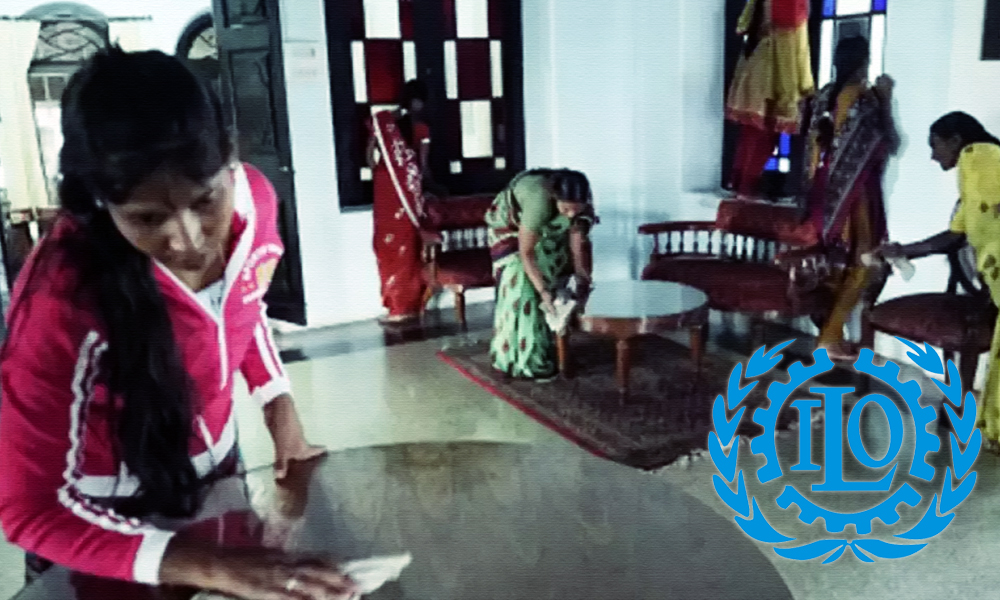
Image Credits: Economic Times
India
Pandemic Has Put Livelihoods Of 55 Million Domestic Workers, Mostly Women, At Risk: International Labour Organization
 |
|The domestic workers are mostly migrant workers who rely on their pay to support their families. Many Live-in domestic workers continue to work for long hours due to the confinement, without salary in some cases.
A study by the International Labour Organisation (ILO) has estimated that nearly three-quarters of domestic workers around the world which is equivalent to more than 55 million people are at the risk of losing their jobs due to the coronavirus lockdown.
Lack of social security coverage is another factor that contributes to the loss of income to such workers amid the global pandemic.
The assessment was reportedly made at the beginning of June and has further revealed that a staggering portion, nearly 37 million of these workers are women.
Furthermore, Southeast Asia and the Pacific have been stated to be the most affected region with 76 per cent of domestic workers at risk followed by the Americas (74 per cent) Africa (72 per cent) and Europe (45 per cent).
The countries that imposed and observed the coronavirus lockdown strictly had an adverse impact on the livelihoods of the domestic workers since the restrictions barred them from going to work.
According to the estimates, while workers both formally and informally employed have been affected but those employed in the informal employment clocked for 76 per cent of those at risk of losing their jobs or working hours.
Informal employment refers to a situation where a domestic worker is employed without any documentation by the employer. In such cases, they remain outside the ambit of the social security cover which guarantees several protective schemes, adding challenges to their survival.
The report said that only 10 per cent of domestic workers have access to social security which meant paid sick leave, guaranteed access to health care, employment injury benefits or unemployment insurance remain unavailable to the majority.
According to ILO, many domestic workers earn as little as 25 per cent of average wages, failing to have sufficient savings to help them tide over any financial emergency.
"The Covid-19 crisis has exposed the particular vulnerability of informal domestic workers, emphasising the urgent need to ensure they are effectively included in labour and social protection," said Claire Hobden, ILO Technical Officer for Vulnerable Workers. "This disproportionately affects women who make up the vast majority of domestic workers worldwide."
The ILO added that while in some regions the domestic workers are mostly migrant workers who rely on their pay to support their families, there are live-in domestic workers, staying with the employers, who continue to work but are made to work mostly for longer hours due to the confinement.
Moreover, the assessment suggested that in some cases, the employers have also stopped paying their live-in domestic workers due to their own financial constraints.